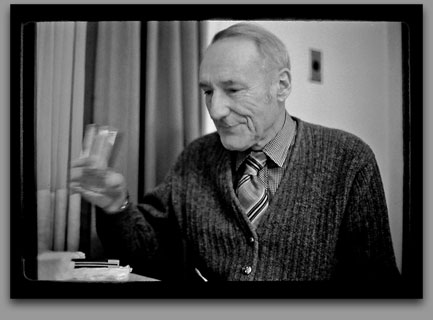 |
A few years ago, while I finishing my own treatise – badly written and rushed – on Burroughs, I started seeing a new wave of serious Burroughs scholars and admirers taking a stand. They were refreshingly dismissive of the Burroughs' myth. Timothy Murphy, Oliver Harris and even the ubiquitous Will Self seemed to bring Burroughs in from the cold cult frontiers to a warmer, welcoming foreground of criticism. It suddenly seemed possible to write about Burroughs and leave out all the anecdotes about heroin, Tangiers, boy love and murder – it finally seemed ok to just read Naked Lunch as a book devoid of its author’s overpowering identity.
But since then about five years have passed and very little has changed. If anything he seems to have become less popular. Now grunge has been phased out there doesn’t seem to be any current cultural waves to shore Burroughs up and claim him their own. Nor does the stream of serious criticism and appraisal appear to have carried on into anything more substantial.
But aside from all that the books remain as brilliant, as enviably unlike anything else written before or since, and quietly people are realising how incredibly well written books like Cities of the Red Night really are. Because when you take away the image of the man the words remain and we realise it is in the words we are captivated, not the man. In books like the Red night trilogy – Cities of the Red Night, Place of Dead Roads and Western Lands – you can’t deny that Burroughs was first and foremost a writer. And it wasn’t just at the end of his career that he fine-tuned this relatively (relative to the cut-ups I mean) straight prose, in Junky and the earlier works we read a writer whose voice is fully formed, undeniably powerful, incisive and confident. I think Burroughs is at a crossroads in terms of his path into the literary firmament. He could either go the way of the cult hero or the way of the original genius with something important to say about the 20th Century. Let’s hope that the façade of his image falls away and the books remain intact.
No comments:
Post a Comment